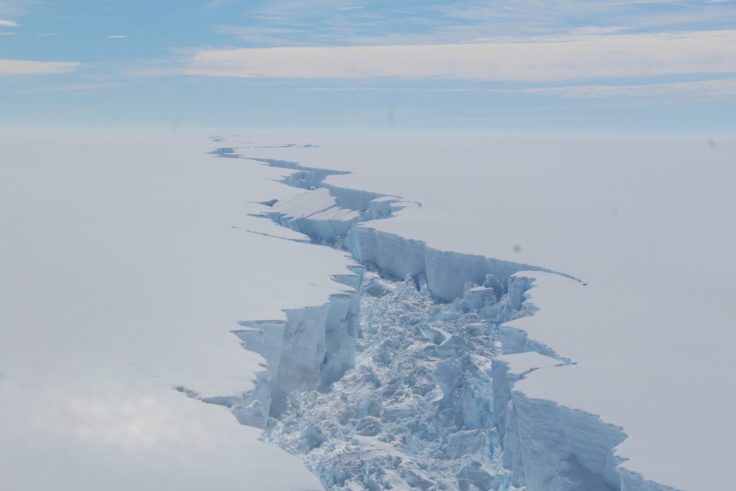BAS science funded by Pushing the Frontiers scheme
Natural Environment Research Council’s pioneering Pushing the Frontiers scheme has funded four projects led by scientists from British Antarctic Survey (BAS). The projects, which received grants totaling £3.8m, are part of a cohort of high risk, high reward research projects intending to tackle critical environment challenges.
The four BAS projects are:
- RIFT-TIP: Rates of Ice Fracture and Timing of Tabular Iceberg Production (£1,093,961) led by BAS glaciologist Oliver Marsh.
- Silicon CycLing IN Glaciated environments (£999,535) led by BAS ocean climate scientist Kate Hendry.
- Simulating Under ice Shelf Extreme Topography / SUNSET (£872,431) led by John Taylor (University of Cambridge) and BAS ocean ice scientist Paul Holland.
- OceanBound (£863,794) led by Chris Hughes (University of Liverpool) and BAS oceanographer Dani Jones.

The £25m Pushing the Frontiers scheme has funded 44 projects that cover the full spectrum of environmental science including geology, atmospheric science, biodiversity and ecology. Projects range from work to improve our understanding of volcanic activity such as eruptions a lava flows, to a study of new microbes capable of consuming the powerful methane greenhouse gas.
Professor Sir Duncan Wingham, Executive Chair of NERC, said:
“This investment supports researchers’ curiosity and imagination to enable discoveries that unlock new knowledge. The studies will tackle some the most critical unanswered questions about our planet. By supporting high risk, high reward environmental science, we are harnessing the full power of the UK’s research and innovation system to tackle large-scale, complex challenges.”
The full list of funding recipients is published on the UKRI website.